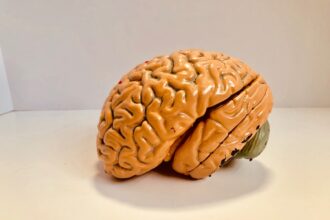In the realm of mental health, the terms depersonalization and derealization often surface, yet they are frequently misunderstood or used interchangeably. However, these two experiences, while related, are distinct phenomena that can significantly impact your perception of reality and self. Understanding the nuances between them is crucial for anyone who has experienced these sensations or is seeking to support someone who has.
As you delve into this article, you will gain insights into what depersonalization and derealization entail, their causes, and the various treatment options available. Both depersonalization and derealization can be disorienting and distressing experiences. You may find yourself feeling detached from your own thoughts, body, or sense of self in depersonalization, while derealization can make the world around you seem unreal or distorted.
These experiences can arise in response to stress, trauma, or other psychological factors, leading to confusion and anxiety. By exploring these concepts in depth, you will be better equipped to recognize the signs and seek appropriate help if needed.
Key Takeaways
- Depersonalization and derealization are two distinct experiences that fall under the umbrella of dissociative disorders.
- Depersonalization involves feeling detached from oneself, while derealization involves feeling detached from the external world.
- Causes of depersonalization can include trauma, anxiety, and substance abuse.
- Derealization can be caused by stress, trauma, and certain mental health conditions.
- Treatment options for depersonalization and derealization may include therapy, medication, and lifestyle changes.
What is Depersonalization?
Depersonalization is characterized by a profound sense of detachment from oneself. You might feel as though you are observing your life from a distance, as if you are an outsider looking in. This sensation can manifest in various ways; perhaps you feel disconnected from your emotions or find it challenging to relate to your own thoughts and actions.
This phenomenon can be temporary or chronic, depending on the individual and the circumstances surrounding their experiences. For some, depersonalization may occur during moments of extreme stress or anxiety, while others may find it becomes a persistent aspect of their lives.
The experience can be unsettling, leading to feelings of confusion and isolation. Understanding depersonalization is essential for recognizing its impact on your mental health and well-being.
What is Derealization?

Derealization, on the other hand, involves a sense of detachment from the external world. When you experience derealization, your surroundings may seem distorted or unreal. You might perceive familiar places as strange or feel as though you are living in a movie or a dream.
This altered perception can create a sense of disconnection from reality, making it difficult for you to engage fully with your environment. Like depersonalization, derealization can be a fleeting experience or a more chronic condition. It often occurs alongside anxiety disorders, trauma-related disorders, or other mental health issues.
Recognizing derealization is crucial for understanding how it affects your daily life and interactions with others.
Causes of Depersonalization
| Cause | Description |
|---|---|
| Stress | High levels of stress or traumatic events can trigger depersonalization. |
| Drug Use | Psychoactive drugs, such as marijuana or hallucinogens, can induce depersonalization. |
| Psychological Disorders | Conditions like anxiety, depression, or PTSD can be associated with depersonalization. |
| Brain Injury | Head injuries or neurological conditions may lead to depersonalization symptoms. |
The causes of depersonalization are multifaceted and can vary significantly from person to person. One common trigger is acute stress or trauma. If you have experienced a traumatic event—such as an accident, assault, or significant loss—you may find yourself slipping into a state of depersonalization as a coping mechanism.
This dissociative response allows your mind to distance itself from the emotional pain associated with the trauma. Additionally, certain mental health conditions can predispose you to depersonalization. Anxiety disorders, depression, and post-traumatic stress disorder (PTSD) are often linked with episodes of depersonalization.
Substance use can also play a role; for instance, the use of hallucinogenic drugs may induce feelings of detachment from oneself. Understanding these causes can help you identify potential triggers in your own life and seek appropriate support.
Causes of Derealization
Derealization shares some common causes with depersonalization but also has its unique triggers. Like depersonalization, derealization can arise in response to trauma or extreme stress. When faced with overwhelming emotions or situations, your mind may resort to derealization as a protective mechanism, allowing you to distance yourself from distressing experiences.
Moreover, derealization is often associated with anxiety disorders and panic attacks. During moments of intense anxiety, you may find that your surroundings feel surreal or distorted. Certain medical conditions, such as migraines or seizures, can also lead to episodes of derealization.
By recognizing these causes, you can better understand your experiences and work towards managing them effectively.
Psychological Factors Contributing to Depersonalization and Derealization

Psychological factors play a significant role in both depersonalization and derealization. Your mental state can greatly influence how you perceive yourself and the world around you. For instance, high levels of anxiety or chronic stress can heighten your susceptibility to these dissociative experiences.
When your mind is overwhelmed by worry or fear, it may resort to dissociation as a coping strategy. Additionally, individuals with a history of trauma may be more prone to experiencing depersonalization and derealization. The psychological scars left by traumatic events can create a heightened sense of vulnerability, making it easier for dissociative symptoms to emerge.
Understanding these psychological factors is essential for addressing the root causes of your experiences and finding effective coping strategies.
Environmental Triggers for Depersonalization and Derealization
Environmental factors can also trigger episodes of depersonalization and derealization. High-stress environments—such as chaotic workplaces or tumultuous home situations—can contribute to feelings of detachment from oneself or one’s surroundings. If you find yourself in an environment that feels overwhelming or threatening, it may provoke dissociative symptoms as your mind attempts to shield you from emotional distress.
Moreover, sensory overload can be a significant trigger for both depersonalization and derealization. Loud noises, bright lights, or crowded spaces may lead you to feel disconnected from reality as your brain struggles to process overwhelming stimuli. Recognizing these environmental triggers can empower you to create a more supportive atmosphere for yourself and reduce the likelihood of experiencing dissociative symptoms.
Neurobiological Factors in Depersonalization and Derealization
Neurobiological factors also play a crucial role in understanding depersonalization and derealization. Research suggests that alterations in brain function—particularly in areas responsible for processing sensory information and self-awareness—may contribute to these experiences. For instance, disruptions in the functioning of the temporal lobe have been linked to feelings of unreality.
Additionally, neurotransmitters such as serotonin and dopamine may influence how you experience reality and self-perception. Imbalances in these chemicals can lead to mood disorders and anxiety, which are often associated with dissociative symptoms. By exploring the neurobiological underpinnings of depersonalization and derealization, you can gain insight into how these experiences manifest in your life.
Relationship Between Depersonalization and Derealization
While depersonalization and derealization are distinct experiences, they often coexist and share overlapping features. Many individuals who experience one phenomenon may also encounter the other at different times or under varying circumstances. This relationship highlights the complexity of dissociative experiences and underscores the importance of understanding both concepts.
The interplay between depersonalization and derealization can create a cycle of distress that exacerbates feelings of anxiety and confusion. For example, if you are experiencing depersonalization during a stressful situation, it may lead to feelings of derealization as your surroundings become distorted in response to your emotional state. Recognizing this relationship can help you develop more effective coping strategies for managing both experiences.
Treatment Options for Depersonalization and Derealization
When it comes to treating depersonalization and derealization, various options are available depending on the severity of your symptoms and underlying causes. Psychotherapy is often considered one of the most effective approaches for addressing these dissociative experiences. Cognitive-behavioral therapy (CBT) can help you identify negative thought patterns contributing to your feelings of detachment while providing tools for grounding yourself in reality.
Medication may also be prescribed in some cases, particularly if underlying mental health conditions such as anxiety or depression are present. Antidepressants or anti-anxiety medications may help alleviate symptoms and improve overall emotional well-being. Additionally, mindfulness practices—such as meditation or yoga—can be beneficial for fostering self-awareness and reducing feelings of disconnection.
Conclusion and Further Resources
In conclusion, understanding depersonalization and derealization is essential for anyone who has experienced these phenomena or wishes to support someone who has. By recognizing the differences between these two experiences, their causes, psychological factors, environmental triggers, neurobiological influences, and treatment options, you can gain valuable insights into managing your mental health. If you find yourself struggling with depersonalization or derealization, know that help is available.
Seeking support from mental health professionals can provide you with the tools needed to navigate these challenging experiences effectively. Additionally, numerous resources—such as support groups and educational materials—can further enhance your understanding and coping strategies. Remember that you are not alone in this journey; many individuals share similar experiences and have found ways to reclaim their sense of self and reality.
In exploring the complex phenomena of depersonalization and derealization, it’s essential to understand the underlying causes that differentiate these experiences. Depersonalization involves a sense of detachment from oneself, while derealization pertains to a feeling of disconnection from the surrounding environment. Both can be triggered by various factors, including stress, trauma, or neurological conditions. For a deeper dive into these conditions and their psychological underpinnings, you might find the article on Unplugged Psychology insightful. It provides a comprehensive overview of these dissociative experiences and their implications. You can read more about it by visiting this related article.
LEARN MORE About Unmasking the Mysteries Behind Depersonalization and Derealization
FAQs
What is depersonalization?
Depersonalization is a mental health condition characterized by feeling detached from oneself, as if observing one’s own body or thoughts from outside.
What is derealization?
Derealization is a mental health condition characterized by feeling detached from one’s surroundings, as if the world is unreal or distorted.
What are the causes of depersonalization and derealization?
The causes of depersonalization and derealization can include trauma, stress, anxiety, depression, substance abuse, and certain neurological conditions. It can also be a symptom of other mental health disorders such as PTSD or dissociative disorders.
Can depersonalization and derealization be triggered by specific events?
Yes, depersonalization and derealization can be triggered by specific traumatic events, such as accidents, abuse, or witnessing violence. They can also be triggered by extreme stress or anxiety.
Are depersonalization and derealization the same thing?
No, depersonalization and derealization are two distinct experiences, although they often occur together. Depersonalization involves feeling detached from oneself, while derealization involves feeling detached from one’s surroundings.
Can depersonalization and derealization be treated?
Yes, depersonalization and derealization can be treated through therapy, medication, and other forms of mental health support. It is important to seek help from a mental health professional if you are experiencing these symptoms.




